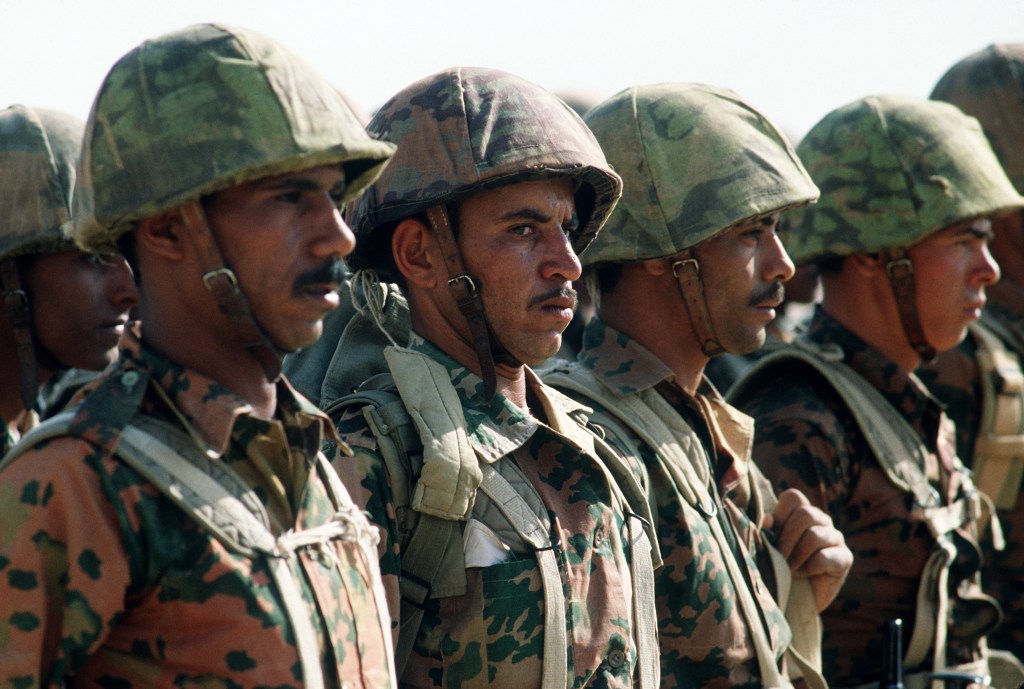
Islamic militants in northern Sinai Peninsula accused the Egyptian military of "barbaric, inhumane" acts during a recent raid of a village that followed a deadly attack on an army outpost near the border with Israel.
The militant group known as the Salafi Jihad in Sinai said in a statement that it fought the troops during the raid on the village of Al Muqataa, where troops raiding homes of suspected militants believed to have been behind the brazen attack near the Egypt-Israel-Gaza border on Aug. 5 that killed 16 Egyptian soldiers.
The rugged Sinai peninsula of barren deserts and daunting mountains, with a population of around 400,000, has long been a volatile corner of Egypt where militants, smugglers, and restive tribes find sanctuary.
In the statement that was posted on a militant website late Tuesday, the Al Qaida-inspired group denied a second time that it was behind that attack. No one has claimed responsibility for the attack.
During military operations Sunday, a soldier was killed and six others were wounded.
The group's statement said troops had stormed houses and raided the mosque and a religious school in the village. Two teachers were injured as snipers, deployed on the school's rooftop were firing indiscriminately, the statement also said.
"The whole village became enraged because of the army's violations and the terror they practiced - raiding houses in a barbaric, inhumane way," the statement said. A group of youth fought the military, firing at armored vehicles and at a helicopter, "forcing the army to flee the village."
The military had confirmed that an army helicopter was hit during the Sinai operation, and said an elderly woman and a 10-year old child were wounded.
Ten militants were arrested in the raid, the army also said.
Since last year's uprising that ousted longtime authoritarian President Hosni Mubarak from power, Sinai has spiraled out of control. Across Egypt, police and internal security forces fell apart during the uprising. They have returned to the streets in some areas, but in Sinai, particularly in the north, their presence remains weak.



